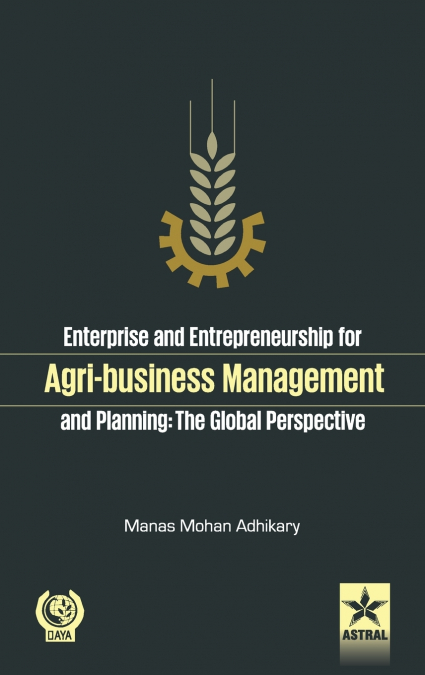
Prof. Manas Mohan Adhikary / ProfManas Mohan Adhikary
'The global agriculture is undergoing a faster transformation than ever before. Indian agriculture has got three distinctive phases of transformation a) inductive phase b) stimulative phase and c) simulative phase. While inductive phase of agricultural transformation in India (1960-1980), went on integrating seed - fertilizer - water in an inductive manner towards ushering a productivity change in the quickest possible time, the stimulative phase (1980-2000) had a clear dent on capacity building of the farming communities through providing training, subsidies and credits. Now, we are passing through a simulative phase (2000 onwards) of transformation, which clearly spearheads the new age green revolution through information and entrepreneurship. Of one hundred twenty million farm holdings in India, most of them must have to be a dynamic display of micro entrepreneurship enough capable of generating splittable income and distributive livelihood. Entrepreneurship makes a farmer occupationally redefined, behaviorally innovative and characteristically risk taking. This has become more inevitable when Indian agriculture is facing, at a faster rate rather, a kind of out migration from the core agriculture to an off farm economy. So, there is a striking need to synergize the farm and off farm economies in the same social ecology, better to say, in the same farming system. Hence, a composite rural economy, precisely to indicate a managerial husbandry between farm and off farm economy, has swept away the exotic and conventional compartmentalization between afore mentioned two streams of rural economies. This has clearly been possible owing to the entrepreneurial transformation of our ’green agriculture’ into a ’silvery agriculture’, capable of generating remunerative income to support the farm family’s weekly and monthly expenditure. That is why, agriculture has to accept the challenge of generating monthly/weekly income and, in this case, the role of precision horticulture, rural tourism, information driven capacity building, market led extension, carbon credit economy, supply chain management, protective horticulture, agri-business and rural skill up-scaling, technology backup and retrofitting, value addition and agri-preneurship, fish-bird-bovine enterprise .... all will present a splendid and spectacular agrarian transformation and economic metamorphosis for Indian agriculture to compete in the global market. The book entitled 'Enterprise and Entrepreneurship for Agri-business Management and Planning: The Global Perspective' has rightly and relevantly designed to cater both the academic and professional needs of scholars, students, teachers, policy makers, management professionals across India and beyond. Every possible aspect of emerging and simmering features of agricultural entrepreneurship in India has well been taken care of by the eminent and erudite authors from the realm of extension science and agri-business management in India. This has also accommodated the pedagogical requirement as framed by the Indian Council of Agricultural Research. Hope the dawning of this book shall add a new chapter and plank of academic discourses and research in the area of extension research and management studies.'